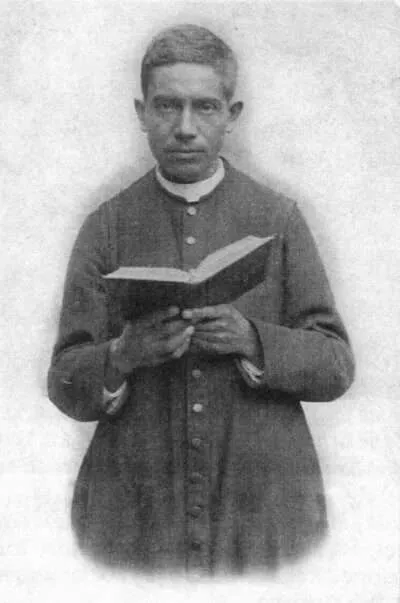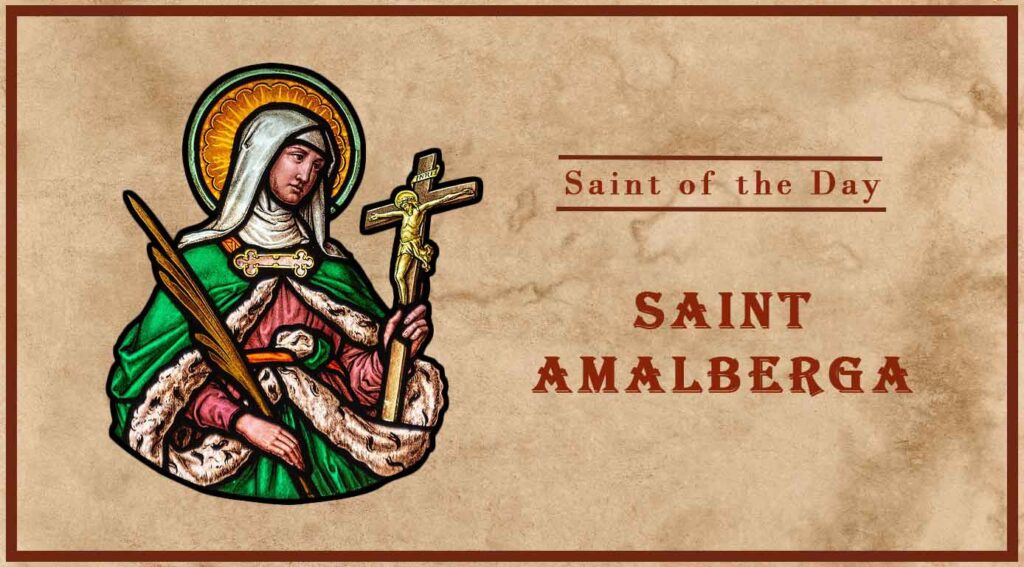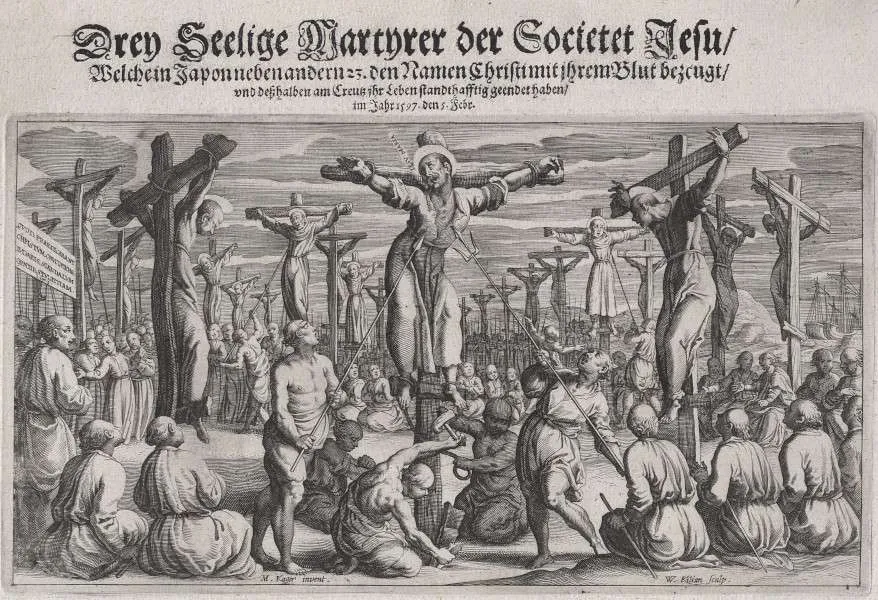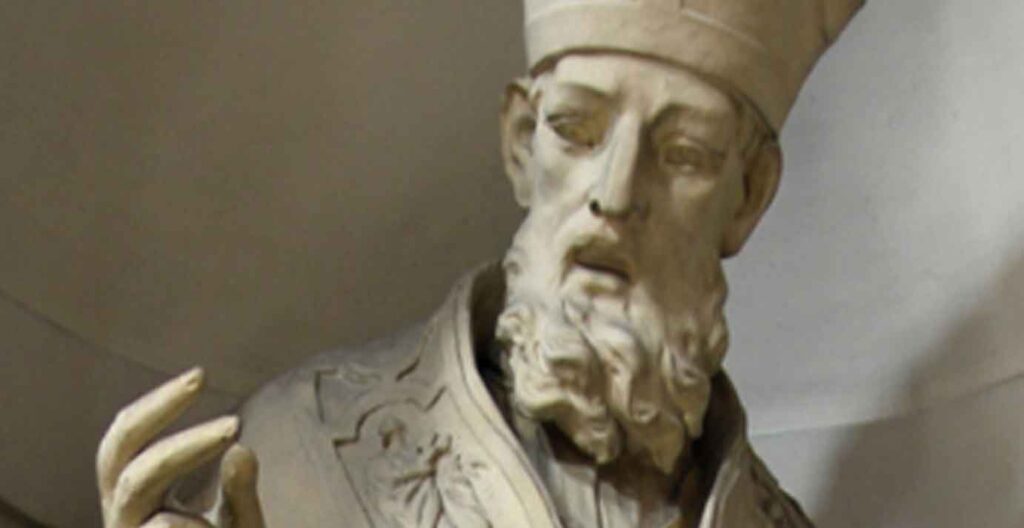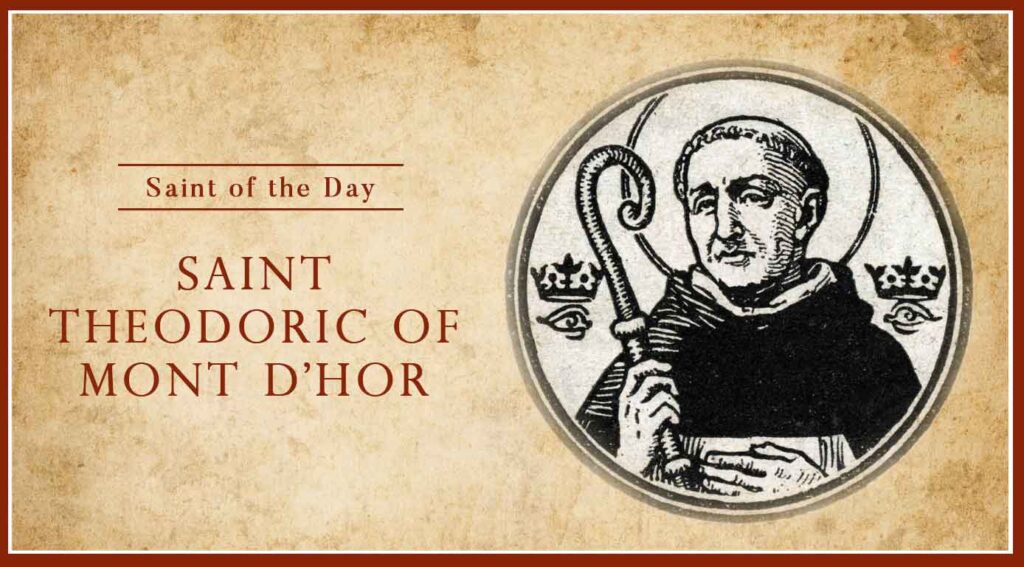1869–1927; Venerated especially in Mexico; Invoked against government persecution; Canonized by Pope John Paul II on May 21, 2000
“¡Viva Cristo Rey! ¡Viva la Virgen de Guadalupe!” Long live Christ the King! Long live the Virgin of Guadalupe! This was the cry of the Christeros, mostly peasant Catholics who opposed the fierce political and anti-Catholic oppression inflicted by the Mexican government on its citizens in the early twentieth century.
The Catholic faith arrived in modern-day Mexico in the early 1500’s with Spanish Franciscians. In 1531, the apparition of Our Lady in Guadalupe greatly aided efforts to share the Gospel. Devotion to the Mother of God and conversions to the Catholic faith grew far and wide. By the turn of the nineteenth century, the Catholic Church was a powerful force in the Spanish colony of Mexico. As a result, some ruling parties resented the Church and sought to eradicate Her influence. Anti-Catholic sentiment especially grew once Mexico declared its independence from Spain in 1810. In 1857, the new Mexican constitution sought to limit the role of the Catholic Church in Mexico. That law resulted in the confiscation of Church property and the beginning of the separation of the Catholic Church from the state. After an initial persecution, there was relative peace until around 1910. In 1917, another constitution was enacted, and in 1926, President Plutarco Elías Calles began to enforce anti-Catholic laws with vigor, especially against Catholic priests. He eliminated the Catholic education of youth, expelled all foreign priests, banned celibacy and religious vows, and confiscated all remaining Church property. The devastation was immense. At the beginning of the century, there were an estimated 4,500 priests serving in Mexico, most of them foreign-born. By 1934, only 334 state-licensed native priests remained for approximately fifteen million Catholics.
In November 1926, Pope Pius XI intervened and issued an encyclical, Iniquis Afflictisque, in which he addressed this new Mexican law: “The most recent law which has been promulgated as merely an interpretation of the Constitution is as a matter of fact much worse than the original law…” In 1934, he followed up with another encyclical, Acerba Animi, in which he said of the Mexican government: “The clearest manifestation of the will to destroy the Catholic Church itself is, however, the explicit declaration, published in some States, that the civil Authority, in granting the license for priestly ministry, recognizes no Hierarchy; on the contrary, it positively excludes from the possibility of exercising the sacred ministry all of hierarchic rank—namely, all Bishops and even those who have held the office of Apostolic Delegates.”
The twenty-five saints we honor today all died at the hands of the government during this period of anti-Catholic turmoil. One died in 1915, and the remaining twenty-four died between 1926–1928. Three of them were laymen; the rest were diocesan priests. Two were hanged in the public square, and the rest were shot to death, most by a firing squad without a trial. Though many of them were falsely accused of supporting armed conflict against the government, the only crime of each priest was secretly ministering to the needs of the people. The three laymen were members of a Catholic action group that worked to oppose the government’s oppression of the Church and encouraged fellow Catholics to remain strong in their faith.
Among these twenty-five martyrs, today’s memorial specifically mentions one by name: Saint Christopher Magallanes. Cristobal Magallanes Jara was born in Totatiche, Jalisco, Mexico to faith-filled parents who were farmers. As a child, Christopher helped work the land and tend the sheep. In 1888, at the age of nineteen, Christopher entered seminary and was ordained a priest eleven years later. He began his priestly ministry as a teacher in Guadalajara but shortly afterwards was appointed parish priest in his hometown where he served for more than twenty years.
As a priest, Father Magallanes not only served the spiritual needs of his parishioners, he also assisted with their intellectual and material needs by founding schools and opening a carpentry shop to employ the locals and build infrastructure for the town. He also evangelized the indigenous people who had not yet heard the Gospel. In 1915, after the government closed the seminary in Guadalajara, Father Christopher opened a secret seminary in his own home, with the support of the bishop. Shortly afterwards he had seventeen seminarians.
Though Father Magallanes did not support armed rebellion, he was accused of assisting the Christeros and was arrested on May 21, 1927 on his way to celebrate Mass at a farm for his clandestine parishioners. Four days later, without receiving a trial, he was shot to death. His last words are recorded as, “I am innocent and die innocent. I absolve with all my heart those who seek my death and ask God that my blood bring peace to a divided Mexico.”
One of the priests assigned to assist Father Magallanes in his secret seminary was Father Agustín Caloca Cortés. Father Cortés was arrested on the same day as Father Magallanes and was imprisoned with him. By God’s grace, the two were able to absolve each other of their sins in preparation for their deaths. Since Father Cortés was only twenty-nine years old, the officers offered to set him free. He refused unless they also set Father Magallanes free, which the guards refused to do. Father Cortés’ last words before being shot were, “For God we lived and for Him we die.”
As we honor these twenty-five heroic martyrs, we are reminded that the Gospel is more important than life itself. It is better to die than to compromise the faith. Though few today face the threat of physical martyrdom, the secular world attacks the faith in many other ways, requiring us to stand as faithful witnesses to Christ. Ponder any ways that you give in to fear in the face of persecution, and pray that the martyrs we honor today will win for you the courage you need to remain faithful until the end.
Source: https://mycatholic.life/saints/saints-of-the-liturgical-year/21-may-saint-christopher-magallanes-and-companions-martyrs–optional-memorial/


